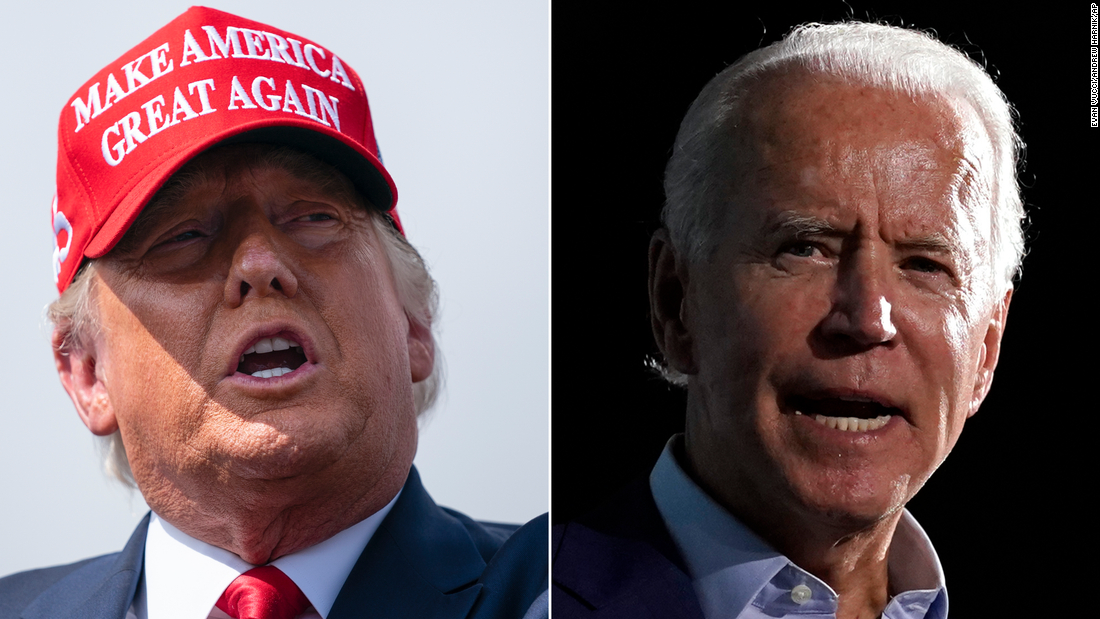The stock market has made its prediction about who will win the election
The stock market has a fairly reliable track record: Since World War II, when the S&P 500 fell in the three months leading up to the November vote during a presidential election year, the incumbent president or party of the outgoing president has lost the election 88% of the time.
Similarly, when the S&P 500 rises during that period, the incumbent or party of the outgoing president has won 82% of the time.
The stock market had been predicting a Trump victory until Friday, when the S&P 500 tumbled 1.2%. That was just enough to send stocks negative over the past three months, giving the razor-thin edge to Biden.
“This year, the Predictor closed ever so slightly in the red during this three-month period, implying, but not guaranteeing, that Biden will emerge victorious,” said Sam Stoval, CFRA’s chief investment strategist.
Betting on a blue wave
“Such a blue wave would likely prompt us to upgrade our forecasts,” Goldman Sachs chief economist Jan Hatzius wrote in a report last month.
Taken together, this spending “would at least match the likely longer-term tax increases on corporations and upper-income earnings,” Goldman Sachs wrote.
Similarly, JPMorgan strategists led by Dubravko Lakos-Bujas noted in July: “The consensus view is that a Democrat victory in November will be a negative for equities. However, we see this outcome as neutral to slightly positive.”
But Moody’s Analytics found that Biden’s economic proposals, if enacted, would create 7.4 million more jobs than would Trump’s. The economy would return to full employment in the second half of 2022, nearly two years earlier than under Trump’s plan, Moody’s said.
Predicting the outcome
No incumbent has ever won a second term when there has been a recession in the two years leading up to the election, according to data from RiverFront Investment Group.
The CFRA Presidential Predictor’s only incorrect forecast when the market fell in the three months leading up to an election was in 1956, when incumbent President Dwight Eisenhower defeated Adlai Stevenson despite a 7.7% stock market decline during the Suez Crisis and the Hungarian Uprising.
![]()


